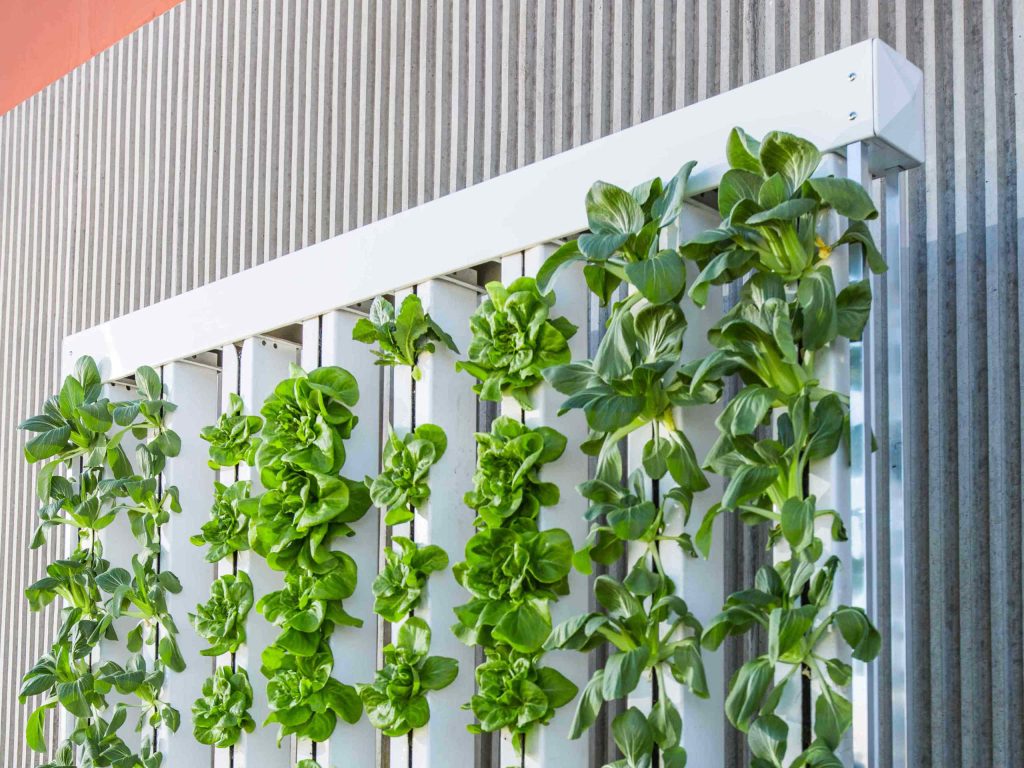
Farm-to-table and hydroponic systems are two innovative concepts that enable sustainable agriculture and more environmentally friendly food production. In recent years, the demand for fresh, locally produced food has increased as consumers are increasingly concerned about healthy eating and are interested in the origin of their food. At the same time, agriculture is facing challenges such as climate change, water scarcity and soil pollution.
Farm-to-table initiatives and hydroponic systems offer solutions to these problems by enabling more efficient and environmentally friendly food production. Farm-to-table initiatives encourage collaboration between local farmers and restaurants to bring fresh and seasonal produce directly from the farm to the table. Hydroponic systems, also known as artificial cultivation, enable more efficient use of resources such as water and nutrients by growing plants without soil.
More and more terms such as home-grown or home-made can be found on menus: lemonades, honey, even home-made balsamic vinegar - guests love the hyper-regional, i.e. ingredients straight from the windowsill and backyard garden.
Garden herbs are now the entry point into the complex world. They fit on the windowsill or in a narrow shelf. The next step up is planters in front of a restaurant or store. This is where things get a little more challenging. The more soil or substrate, the better. In any case, it should remain decorative and well-maintained to whet the guests' appetite for more. And for the expert, it's hydroponics. Hydroponics is the growing and cultivation of ornamental and crop plants in a hydroponic system in which the roots of a plant are suspended in a nutrient solution, a mixture of water and nutrients dissolved in it.
One of the successful concepts is Good Bank in Berlin. They grow lettuce in their own vertical farming system. The demand for vertical farming is constantly increasing, both in the private sector and in restaurants. Lettuce is perfect for this. A wonderful example is the Steirereck: Pogusch PPAG architects have planned two glass houses on a slope. One of them is unheated, the other is heated. The variety of plants can not only be enjoyed on the plates, but also during an overnight stay.
More and more people are interested in where their food comes from and are prepared to pay for it. Growing your own food can be easy. With herbs and edible flowers such as marigolds, lavender, nasturtiums, chives, ornamental leeks and much more. Overall, farm-to-table is an opportunity for every restaurateur to offer high-quality, seasonal food that comes from the region. It also allows restaurateurs to raise awareness of healthy eating and strengthen the relationship between restaurant and customer.

When the new France edition of the Michelin Guide is presented on March 16, 2026, the international gourmet scene will turn its attention to Monaco for the first time. The Principality will host the official ceremony – a first in the history of the restaurant guide. The venue will be the Grimaldi Forum Monaco, organized as part of a joint initiative between the Principality of Monaco and Monte-Carlo Société des Bains de Mer, which is acting as the exclusive partner.
It is more than a cookbook. Kanaan – Cooking without borders is a manifesto for understanding, compassion, and what good food has always been able to do: bring people together. Every day at the Kanaan restaurant in Berlin, Israeli Oz Ben David and Palestinian Jalil Dabit demonstrate that cuisine speaks a universal language – and that where there is cooking, understanding begins.
INFO
Kanaan – Cooking Without Borders
Authors: Oz Ben David, Jalil Dabit
Photography: Elissavet Patrikiou
Publisher: Südwest Verlag
Length: 192 pages
ISBN: 978-3-517-10429-4
Price: €28.00 (Germany) / €28.80 (Austria) / CHF 38.50
Las Vegas is known for its long nights, which makes places that do mornings really well all the more important. Between the Strip and downtown, there are a surprising number of spots where breakfast and coffee are not just an afterthought, but are deliberately celebrated. It’s these places that make all the difference: quiet, high-quality, and offering just the right amount of enjoyment before the day gets going.


Farm-to-table and hydroponic systems are two innovative concepts that enable sustainable agriculture and more environmentally friendly food production. In recent years, the demand for fresh, locally produced food has increased as consumers are increasingly concerned about healthy eating and are interested in the origin of their food. At the same time, agriculture is facing challenges such as climate change, water scarcity and soil pollution.